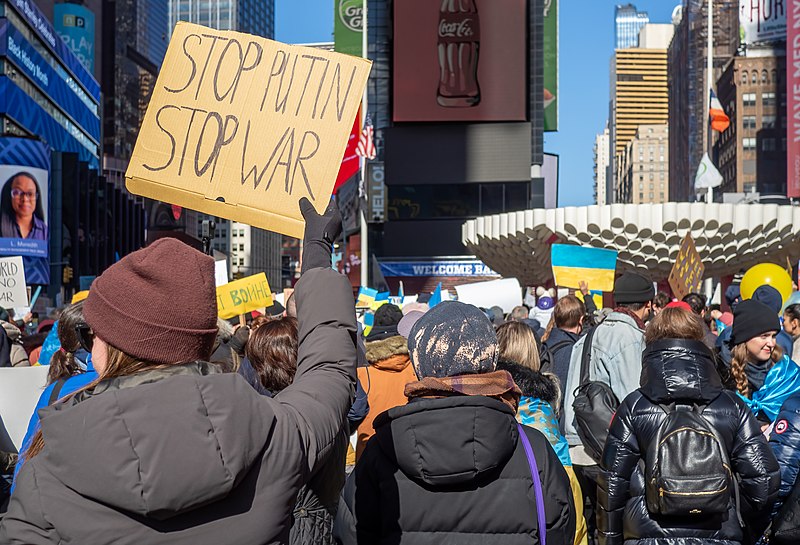Referendums in Ukraine: A reminder of the strength of national identity

Protests against Russian Invasion of Ukraine
Hailey Brown - Russia is staging referendums to annex four regions it occupies in Ukraine, asking residents ‘Do you wish to secede from Ukraine and create an independent state that will enter the Russian federation?’ Referendums are met with scrutiny internationally and by Ukrainians living in the occupied areas. Internal reaction to these referendums speak to the strength of Ukrainian national identity.
National identity is the strong sense of attachment people feel toward one nation over another, which generates the loyalty citizens feel for their state. Ukrainians feel a strong sense of belonging to Ukraine and are thus opposed to annexation by Russia. This has sparked a response of avoidance and retaliation to the referendums. Following advice from their Ukrainian leaders, citizens are hiding away in their homes, doors locked and lights off in attempts to avoid responding to the poll. Ukrainians forces are responding to the polls with violence, blowing up warehouses that hold ballots and Russian meeting places. The referendums are not a free or fair vote — Russian officials forcing the vote incite fear that any vote in opposition will lead to harsh repercussions. The Times quoted freelance journalist Tina, “We are against these occupiers, but we do not have a right to say no — we cannot refuse.” If they vote against secession, there is a high likelihood they could lose their jobs, or even be abducted. If Russia succeeds, Ukrainians living in these areas could be forced to join the Russian military as part of the draft. Ukrainians are unwilling to bow to Russia, loyal to their home state and motivated by their national identity.
If Russia is successful in annexing these regions, the boundary would splinter Ukrainians from their home state. The national identity of Ukrainians living in the border region (the area near the boundary with Russia) will stay unchanged, but the newfound Russian governance will impact the culture and identity of the area and potentially lead to more boundary conflicts.

